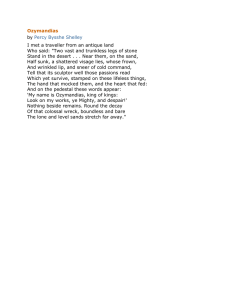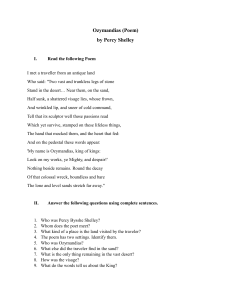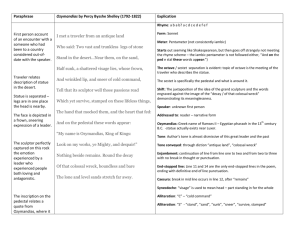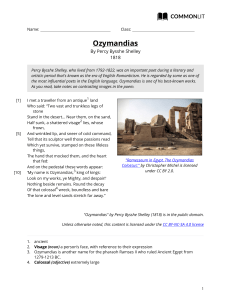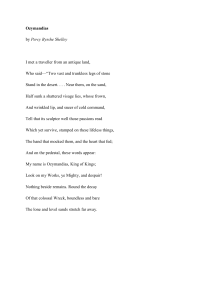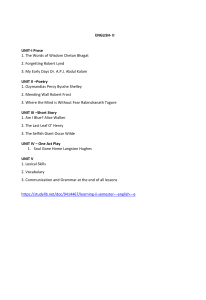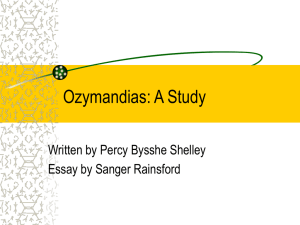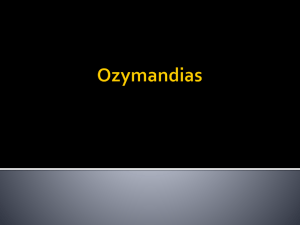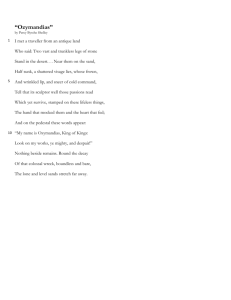POETRY FOR
advertisement
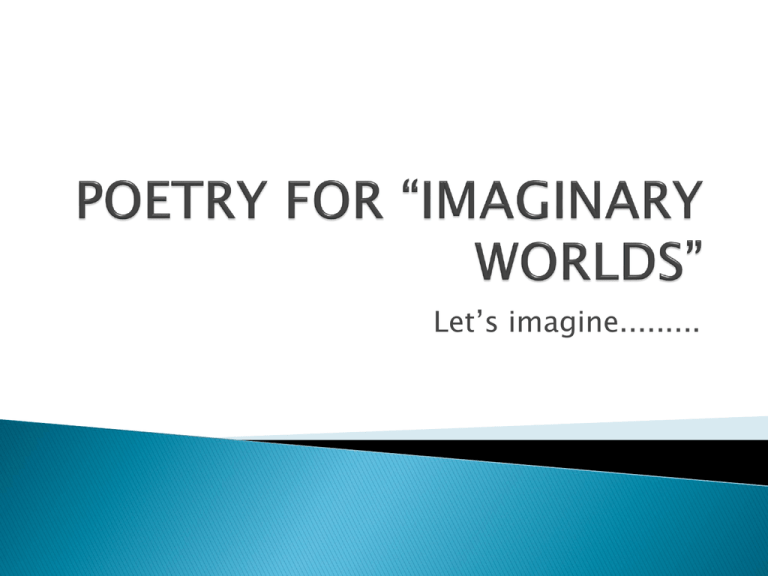
Let’s imagine......... Ozymandias I met a traveller from an antique land Who said: `Two vast and trunkless legs of stone Stand in the desert. Near them, on the sand, Half sunk, a shattered visage lies, whose frown, And wrinkled lip, and sneer of cold command, Tell that its sculptor well those passions read Which yet survive, stamped on these lifeless things, The hand that mocked them and the heart that fed. And on the pedestal these words appear -"My name is Ozymandias, king of kings: Look on my works, ye Mighty, and despair!" Nothing beside remains; round the decay Of that colossal wreck, boundless and bare The lone and level sands stretch far away.' by Percey Bysshe Shelley (1818) ANALYSIS Main Idea This is a poem by Percy Bysshe Shelley who lived in the 19th century. In the poem, the author recalls aa traveller telling him about an “imaginary world” of a large , but decayed, sculptured statue (Ozymandias) in the desert. The name, “Ozymandias” is another name for Rameses, the Great, Pharoah of the 19th dynasty of ancient Egypt. It goes on to describe what is inscribed on the stone pedestal on which the base of the statue rests. Theme The inscription, in summary, says that the works of man are nothing compared to the works of nature. In other words, the sands of the desert remain long after the statue has disintegrated. Structure This is a sonnet of 14 lines in length: 8 being the octave and 6 being the sestet. It is written in iambic pentameter rhythm. Its rhyme schemeis: ABABACDCEDEFEF It is an extended metaphor for the ephemeral nature of political power. The traveller tells the author that the sculptor of the statue understood well the passions of the statue’s subject, a man (Ozymandias aka Rameses) who sneered with contempt for those weaker than himself, yet fed his people because of something in his heart (“The hand that mocked them and the heart that fed”). The one-great king’s proud boast “Look on my works, ye Mighty, and despair!“ has been disproved by time. His works have crumbled and disappeared, his civilisation has gone, all has been turned to dust by the indiscriminate power of history. The statue is an example of one man’s hubris and a powerful statement about the insignificance of human beings to the passage of time.
